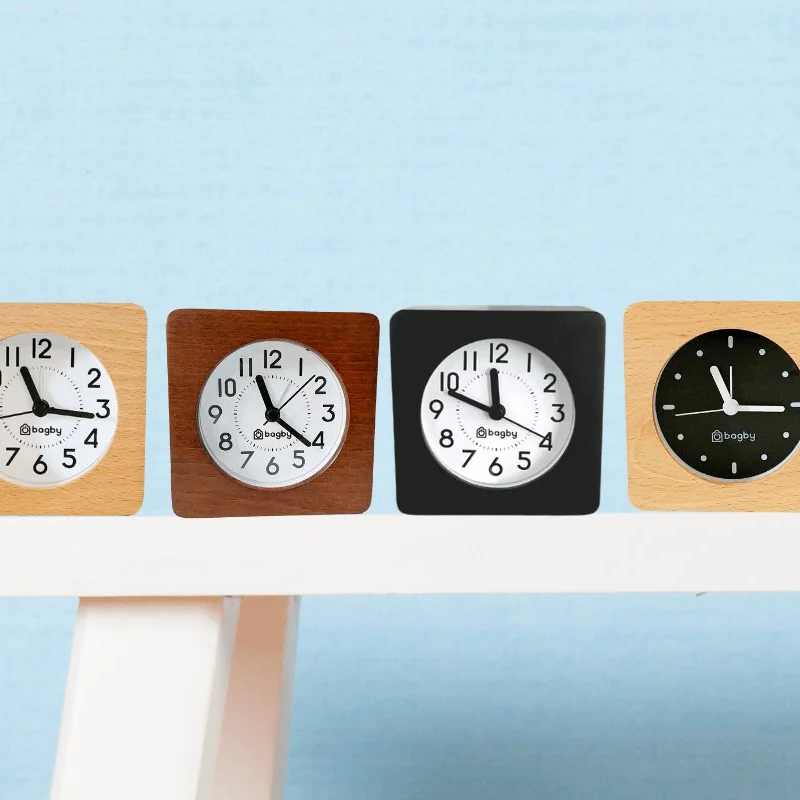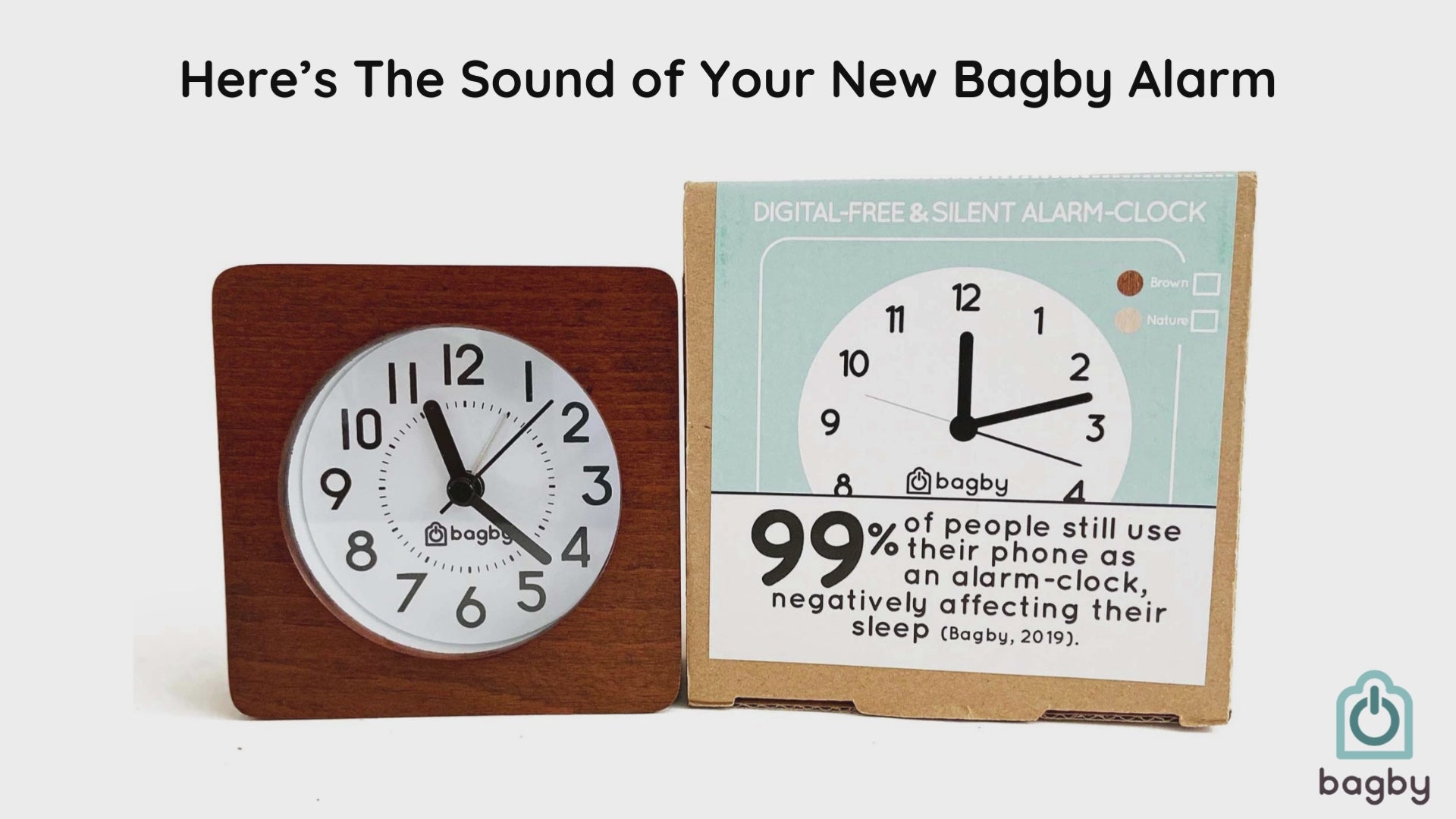Intelligence is not just about having a higher IQ score, good academic grades, or a good memory.
But evidently, these are the things that we focus on the most, leaving other aspects of intelligence, like emotional intelligence, underdeveloped. And experts say that modern technology adds fuel to this fire.
But how does technology prevent people from developing emotional intelligence?
Well, that’s what we’re going to look at in this post. We’ll discuss the importance of emotional intelligence, the role of technology in hindering its development, and above all, what you can do about it. So, let’s begin.
What is Emotional Intelligence?
We all are guilty of blindly giving in to our emotions at one time or another and suffering the consequences. And that’s okay because humans are emotional beings, and evolution has engraved the ability to emote deep within our subconscious.
But it has also given us the ability to manage our emotions, so these kinds of things don’t happen too often.
I’m not saying feeling emotions is a bad thing. It’s actually necessary for our survival as a species. But there needs to be a healthy balance between feeling emotions and being governed by them.
That’s where emotional intelligence comes into play.
Emotional intelligence is the ability to identify and manage your own emotions and recognize others’. Psychologists say that emotional intelligence has five different elements. Have a look.

Self-Awareness
Emotional self-awareness is the ability to understand your own emotions and know how those emotions impact your performance.
When you know why you’re feeling what you’re feeling and how your actions help or hurt others, you:
- Get an accurate sense of your limitations and strengths
- Have a realistic degree of self-confidence
- Have clarity on your values
- Know your purpose
- Become more decisive
- Take proper actions
Self-awareness is critical, especially if you’re in a position of authority. As psychologist Daniel Goleman explains, lack of self-awareness as a leader correlates with "poor financial results, being bad at managing talent and inspiring people to do their best, and being a poor team leader.”
Self-Regulation
Besides being aware of your own and others’ feelings, emotional intelligence is also about being able to manage and regulate your emotions.
Mind you, in no way does self-regulation mean locking down your emotions and hiding what you truly feel. It's about expressing your emotions appropriately, at the right time and place.
People who have good self-regulation skills are flexible and can adapt to changes much more efficiently. Aside from that, they’re also really good at diffusing tense situations and managing conflicts.
There's more to it, too. If individuals have strong self-regulation skills, they tend to be high in conscientiousness, which means they care about how they’re influencing others and can take responsibility for their own actions without any hesitation.
Motivation
Intrinsic motivation is doing things for your own fulfillment rather than for external reasons (like receiving an award, gaining recognition, or getting out of a punishment). It's one of the critical elements of emotional intelligence.
If an individual is emotionally intelligent, it takes much more than money, fame, or acclaim to motivate them. They do things passionately to fulfill their own inner goals and needs. Instead of external rewards, they seek internal rewards like becoming the best version of themselves, learning new skills, and pursuing peak experiences.
Those who have intrinsic motivation tend to be action-oriented. This means they set goals for themselves, chase achievement, and never stop looking for ways they can do better.
They also tend to be really good at taking the initiative and not waiting for someone to do things for them.

Empathy
Empathy is an important skill to have as it involves putting yourself in other people’s shoes. When you understand how others are feeling, you can align yourself with their pain, building a better road to coming up with a solution.
But that’s not it. Besides recognizing the emotional state others are in, empathy requires you to respond appropriately to the situation.
When you use empathy in your daily life, it strengthens your relationships with other people. This is because, rather than trying to force your emotional state onto others, you’ll look to align yourself with their emotional state.
Social skills
Many people feel that they can’t make friends, have meaningful relationships, and get others to like them. This happens when people lack social skills.
But the fact is, no one lacks social skills in the true sense. Evolution has engraved the ability to be social deep in our being. It just needs a bit of effort and work on your end.
Social ability is one of the key elements of emotional intelligence, which includes skills like effective verbal communication, active listening, nonverbal communication, persuasiveness, and leadership.
When People Lack Emotional Intelligence
Emotional intelligence is something that people start developing as an infant. It begins with learning that people will respond to them when they cry or smile. And as they grow, they become more aware of their emotions, naming them, responding to them, and eventually regulating them.
But this doesn’t happen automatically. Babies develop emotional intelligence as they observe and interact with the people around them—their parents, friends, family, acquaintances. This process continues even when the baby grows to be an adult.
Emotional intelligence is an ever-developing process. And you must nurture it, because if not, a once-highly emotionally intelligent person can seemingly become clueless about emotions.
Here are some signs an individual lacks emotional intelligence.
- Oblivious to other people’s feelings
- Insensitivity
- Poor coping skills
- Emotional outbursts
- Struggling with relationships
What Causes Low Emotional Intelligence
There are many reasons why individuals lack emotional intelligence. Here are some examples.
- Lacking knowledge about emotions
- Low intrapersonal intelligence
- Lack of practice
- Upbringing in which talking about emotions is discouraged or even punished
- A negative view of emotions
- Selfishness
But, experts say that as modern technology took over our lives, it also brought a new cause for decreasing emotional intelligence in the general population. Let's take a look.
The Role of Technology in the Decline of EQ
Inarguably, modern technology has made our lives easier and more convenient. But that convenience has also caused us to stop doing things that are crucial for our emotional development.
Says Rob Asghar for Forbes Inc., “We’ve lost the ability to sit still with our own thoughts, we’re losing the ability to be with the people around us. In grocery store lines, we used to chat with people. In movie theater lines, we would talk about movies. None of that can happen if our faces are in our phones.”
And it’s not just about compulsively using your phone. Modern technology is designed to allow you to ignore the physical aspects of your life without any major consequences.

Technology and Isolation
As modern tech integrates with more of our daily activities, we increasingly isolate ourselves because, frankly, there’s no necessity to do things face-to-face. Shopping, dining, entertainment, education, socializing—technology lets us access all of them through our phones and computers.
Even if you don’t go out for months, if you have a phone or a computer with a stable internet connection, you can get virtually everything you want delivered right to your doorstep. And your life will not change a lot.
But, doesn’t technology save you a lot of time, which you can further invest in other aspects of your life?
Well, that’s true. But how many of us use the saved time to catch up on other meaningful stuff?
Reality is, saving you time is just one driver of modern technology. The other is to keep you hhttps://www.shieldyourbody.com/tech-companies-brain/ooked on your gadgets and internet services. Let me explain.
Facebook (Meta), Twitter, Instagram, Reddit, and YouTube are some of the biggest social media sites in the world. And they generate their revenue through advertisements. This means that the more you spend time on their sites, the more money they make.
To ensure this happens, these platforms use several tactics to keep you scrolling and binging. Read my post “Gadgets are Addictive” for more information on how they do this.
These sites force you to isolate and ignore the physical aspects of your life. Because you spend most of your time scrolling and binging, you don’t take the time to go out, meet people, enjoy nature, and do things that feed your emotional intelligence.
Socializing on Social Media ≠ Socializing In Real Life?
Building higher emotional intelligence requires socializing with people, reading and responding to their emotions, observing non-verbal cues, and more. And as advanced as it can be, social media can’t give you these experiences.
I do agree that social media is an important tool. Many people live and work far from their loved ones, and social media is the best way to stay in touch. But, it’s a tool, and that’s it.
Because, no matter how much you say that you’re socializing on social media, for your evolutionary brain, you’re just feeding facts to your conscious brain through something that emits light.
Evolution has designed us to be social animals because it made sense during millennia of human evolution. If you were in a group, you had a higher chance of survival.
And even though we’re not being attacked by rival tribes or wild animals today, our brains are designed to be cautious of our safety. When you don’t socialize as evolution intended, your brain and body will start reacting in a way they think is appropriate. And unfortunately, these reactions include poor self-esteem, decreased sense of empathy, chronic stress, anxiety, and depression.
And it doesn’t stop there. Lack of socializing also reduces your emotional skills, causing you to have a hard time socializing in real life, further increasing the intensity of these problems.
“The intensification of online social networking facilitated with internet-based mobile phone, however, has caused issues on the learning of emotional skills, a skill which is believed to be the essential indicator for higher achievement both in personal and professional context,” says Lina Rosmawati from the President University.
Tech-Induced Sleep Deprivation Harms Emotional Intelligence
According to a National Sleep Foundation survey, four out of ten Americans take their phone to bed.
Sleeping with your phone is definitely bad news: checking it at night stimulates your brain, causing it to be active when it’s supposed to be resting and working on background tasks like long-term memory processing, detoxification, and healing. Because of the unnecessary activity, you don’t get a good night’s rest.
And besides that, cell phones also expose your eyes to blue light, which interferes with your circadian rhythm. You can learn more about blue light and its effects in my separate post that discusses this subject in-depth.
Research says that when you don’t get enough REM sleep, it harms your emotional intelligence and constructive thinking skills.
This Is Why Ed Sheeran Hasn’t Had a Smartphone in 7 Years
Today, smartphones are an extension of our lives. There are many things we simply can’t do without them. Logically, for someone like famous musician Ed Sheeran, a smartphone should hold much more importance than for the general population. But, evidently not.
In a 2022 INC interview, Sheeran revealed that he hasn’t had a cell phone since 2015. And when he says cell phone, he’s not talking specifically about smartphones or even flip phones.
He literally hasn’t had a cell phone in 7 years.
“I could be having a conversation with you over dinner, right? And we’re really getting into it and talking about some serious sh-t. And my phone can vibrate in my pocket. And even
“Now I’ve got two texts, maybe that was important. Should I check my phone? No, I’m having a conversation with Ben. I shouldn’t check my phone. And I’m kind of listening to you, but I’m also thinking that.”
Living in the moment is something we all want to do. But, because of our fast-paced lives, it’s virtually impossible for us to achieve that.
But how does Sheeran manage to do it?
Here’s How Ed Sheeran Electronically Connects with People
If he doesn’t use a cell phone, how does he respond to text messages or post on social media? And above all, what about work communication?
“I have an email...and like, every few days, I’ll sit down and open up my laptop, and I’ll answer 10 emails at a time,” said Sheeran. “I’ll send them off and close my laptop, and then that’ll be it. And then I’ll go back to living life, and I don’t feel overwhelmed.”
So, is ditching a cell phone the reason for Sheeran’s high emotional intelligence, as shown in his answers?
Could be.
“The best thing about it, aside from mental health and feeling better about everything, is the moments that I have with the people I love in person, uninterrupted,” Sheeran said.
Although ditching the phone altogether isn’t something we can all afford to do, we can take away something very actionable from Sheeran. And that is you don’t have to be connected at all times.
Most of the time, we choose to be connected to our cell phones at the cost of our mental health, emotional intelligence, and relationships.
So, ditch your phone when you can, and be present in the real world— your future self will thank you.
What Can You Do?
Though modern tech has many side effects, we can’t remove it from our lives. Technology made us the advanced species we are today. And giving it up would mean going back to the way humans lived 200 years ago.
But this problem isn’t without a solution. You just need to build a healthier relationship with technology. Here are some of the changes you can make to keep enjoying the benefits of tech without the side effects that tag along.
Screen Time Limits
We often talk about setting screen time limits for kids, but we fail to realize that they're equally important for adults.
Today, it feels like we don’t have much time to do things like pursue hobbies, meet people, and generally enjoy nature. But, if you look closely, you’ll realize that we do, in fact, have time. We just spend our free hours on our gadgets, mindlessly scrolling social media, binging media content, and keeping up with the influencers.
When you set up a screen time limit for yourself, you’ll have a lot of time to spend doing things offline like meeting your loved ones, interacting with other people, and doing physical activities—the kind of stuff that is great for your emotional health.
Read my post “Screen Time Limits for Adults” for more information.

Digital Detox
Digital detox is one of the best ways to balance your relationship with technology. And above all, it isn’t intrusive. This means that there are many variants of digital detox, and you can choose one that fits you the best.
I have written a separate in-depth post explaining digital detox and how you can start integrating it into your life today. So, give it a read.
Focus More on The Real World
Technology is there to make our lives easier. We control it, and not vice versa. If you use technology as a tool to make your life better, it will align with your goals. But, if you give in to its attraction, it will start harming you.
The way you can achieve a better tech-life relationship is by setting your priorities straight. Plan your day in a way that allows you to spend a healthy amount of time in the physical world, with real people, and not on your phone.
And the most important thing, besides a few exceptions, is that you need to be guided by these priorities every day. Consistently making time for the real world will, in the long term, benefit you greatly.
Start Living in the Moment
When you put your gadgets down, only then can you fully realize where you are and be present, say experts. Many call it “living in the moment.” And you, too, should start doing this because when you’re aware that you’re in the real world, with real people, it compels your brain to fit in.

This forces you to participate emotionally, which in turn, sharpens your emotional intelligence.
In June 2022, National Public Radio (NPR) writer Manshee Khurana reached out to NPR listeners to learn their strategies for ditching their phones and living in the moment. Their responses revealed four ways you can take a break from technology and participate in the real world. Have a look.
Getting Rid of Apps and Distractions
When you get rid of social media apps and distractions on your phone, you won’t be compelled to check your phone so frequently. And since you can still access your socials through a web browser, you don’t even have to abandon your account.
- One of the respondents, Rob Wittman, took it up a notch and added two-step verification on his social accounts. Whenever he needs to access his socials through a web browser, he has to go through the entire process of verifying his credentials. This ensures that he’s only checking his socials when there’s something really important.
- Mary Biddle, another respondent, unfollowed all non-family Facebook friends. This way, she could still keep up with the people she cares about while spending a fraction of the time.
- And finally, Talora Michal ruled that her phone wasn’t invited when she was out with people.
Ditching Your Phone
Four of the respondents found that ditching their phones or other electronic gadgets is one thing that helps them live in the moment.
- Stuart Sutton started keeping his phone in the other room when he went to bed.
- Charlene Gaubis started keeping a list of random things that came to her mind throughout the day that’d usually make her run to Google for answers. She made a rule that she’d save all the searches for one daily session.
- Linda started leaving her phone and a note which said where she was going by the front door, so her family knew she didn’t have her phone and where to look for her if needed.
- Greta Bailey started testing her daughters on the landmarks and street names in her neighborhood while teaching them to drive. This way, they’d instinctively know how to get around instead of reaching for their phones for directions while driving.
Finding Non-Internet Activities
Two people said they found relief from the constant involvement of tech in their lives by finding non-internet activities.
- Stafford Wood kept envelopes addressed to his favorite friends ready to go. This way, he could send letters to his friends randomly for no reason whatsoever.
- Nathan Venturini started keeping a small stack of 3-by-5-inch notecards on his desk, along with a pencil, a pen, and a little wooden carrying tray. This allowed him to write his thoughts whenever he wanted, helping him keep track of his feelings without being fully distracted from whatever he was doing.
Downgrading Technology
And finally, three of the NPR respondents found that downgrading their technology is the best way to start living in the moment.
- Charlene Gaubis and her husband found that they’d often check the time on their phones, and when they did, they’d start using their phones, taking an unintended trip down a rabbit hole. Their solution was to wear watches and check the time on their wrists instead.
- Sergio E. Serrano shifted to using analog technology. He started playing his vinyl records in the background or listening to his old analog radio while he enjoyed his love for cooking.
- Taylor Parnell, meanwhile, made a significant change on her smartphone. She found a service plan that only offers texts and calls. This way, when she’s out with other people, she has no other option but to engage with her surroundings.
So, there you go. Some handy tips that you can start applying in your life today. But you don’t have to limit yourself to these. You can even find your own version of ditching your phone and living in the moment. The goal here is to use technology as a mere tool to free you up, so you can use the saved time to focus on things that really matter.
So, start analyzing your relationship with your phone right now and find where you can cut down.
Say No to Giving Your Child A Phone (For as Long as Possible)
As I mentioned, the development of emotional intelligence begins in infancy. And if you have a toddler, keep them away from tech. Because now is not the time they need to learn from the virtual world. Instead, they need to spend their days learning about the real world.
And if you have a tween, sooner or later, you have to answer the question, “should I give my child a smartphone?”. I recommend saying no for as long as possible. And even when you give them the gadget, set screen time limits, and constantly monitor the kind of content they’re exposing themselves to.
Read my post “Is My Child Ready for a Smartphone?” for in-depth information on this subject.
Final Thoughts
Developing and nurturing your emotional intelligence is just as important as doing things to improve your logical and linguistic intelligence.
We can’t stop technology from growing and getting more involved with our lives. But, in the end, it’s you who has control over your gadgets. So, no matter how advanced, intelligent, or invasive technology becomes, you can harvest its benefits and limit its negative effects if you do the right things.
The metaverse is an excellent example of technology becoming more advanced and personal. Read my separate in-depth post to learn more about the metaverse, its effects, and what the “right things” are that you can do to protect yourself and your loved ones.


















